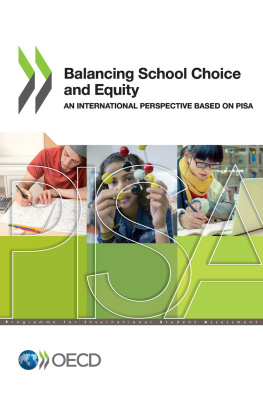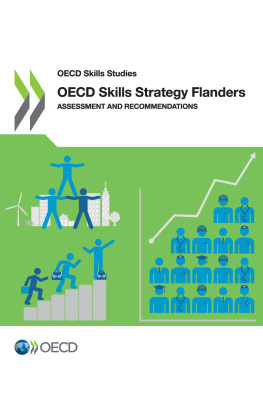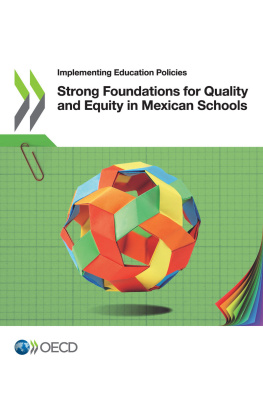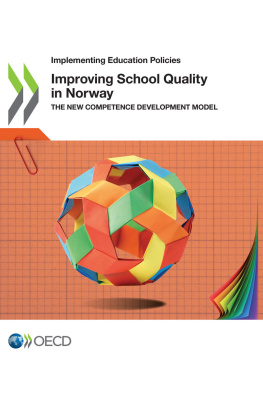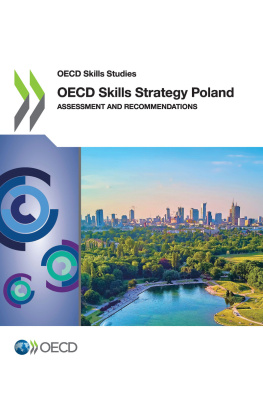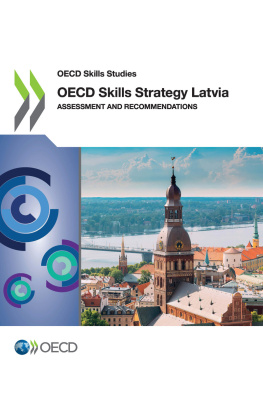OECD - Balancing School Choice and Equity
Here you can read online OECD - Balancing School Choice and Equity full text of the book (entire story) in english for free. Download pdf and epub, get meaning, cover and reviews about this ebook. year: 2019, publisher: OECD Publishing, genre: Politics. Description of the work, (preface) as well as reviews are available. Best literature library LitArk.com created for fans of good reading and offers a wide selection of genres:
Romance novel
Science fiction
Adventure
Detective
Science
History
Home and family
Prose
Art
Politics
Computer
Non-fiction
Religion
Business
Children
Humor
Choose a favorite category and find really read worthwhile books. Enjoy immersion in the world of imagination, feel the emotions of the characters or learn something new for yourself, make an fascinating discovery.
Balancing School Choice and Equity: summary, description and annotation
We offer to read an annotation, description, summary or preface (depends on what the author of the book "Balancing School Choice and Equity" wrote himself). If you haven't found the necessary information about the book — write in the comments, we will try to find it.
OECD: author's other books
Who wrote Balancing School Choice and Equity? Find out the surname, the name of the author of the book and a list of all author's works by series.
Balancing School Choice and Equity — read online for free the complete book (whole text) full work
Below is the text of the book, divided by pages. System saving the place of the last page read, allows you to conveniently read the book "Balancing School Choice and Equity" online for free, without having to search again every time where you left off. Put a bookmark, and you can go to the page where you finished reading at any time.
Font size:
Interval:
Bookmark:
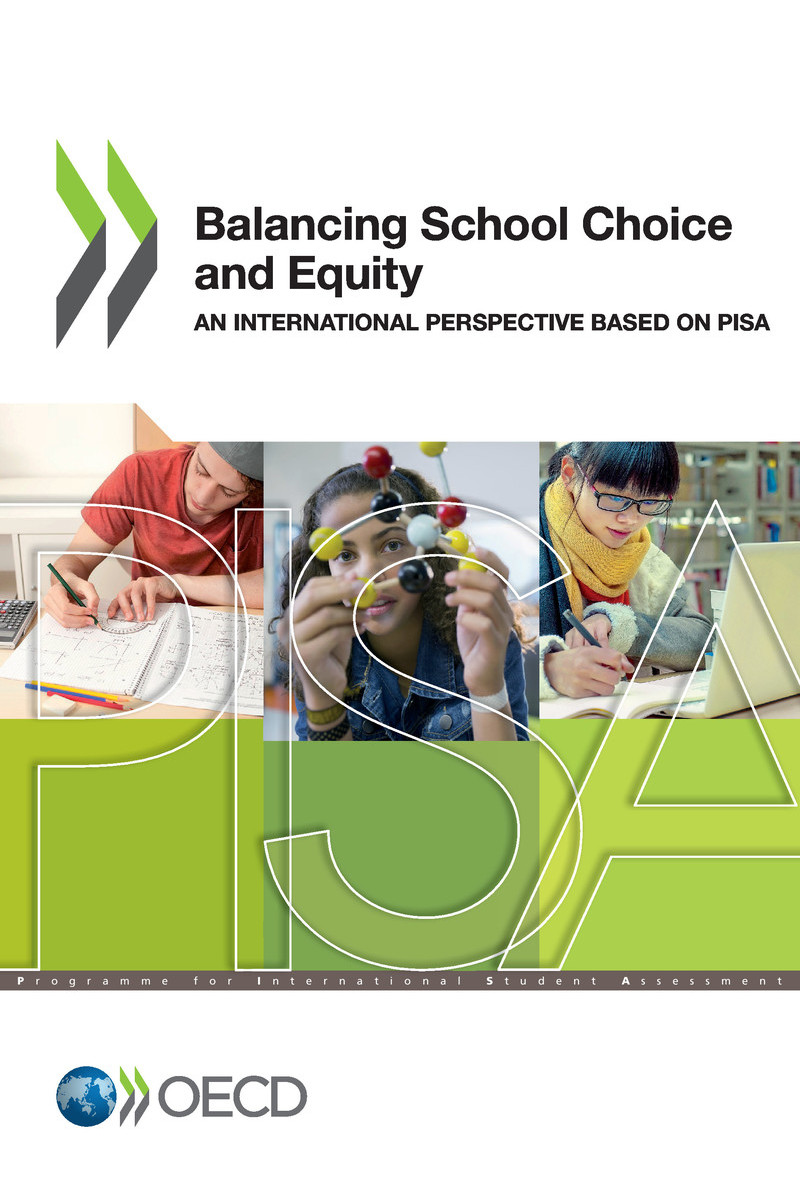
OECD (2019), Balancing School Choice and Equity: An International Perspective Based on Pisa , PISA, OECD Publishing, Paris, https://doi.org/10.1787/2592c974-en .
Many countries are struggling to reconcile their aspirations for greater flexibility and more opportunities for parents to choose their childs school with the need to ensure quality, equity and coherence in their school systems. The new analyses from PISA presented in this report suggest that this is an achievable goal. School choice, in and of itself, neither assures nor undermines the quality of education. What matters are smart policies that maximise the benefits of choice while minimising the risks, and establishing a level playing field for all providers to contribute to the school system.
School choice will only generate the anticipated benefits when the choice is real, relevant and meaningful, i.e. when parents can choose an important aspect of their childs education, such as the pedagogical approaches used to teach them. If schools are not allowed to respond to diverse student populations, and to distinguish themselves from each other, choice is meaningless. In turn, private schools need to accept the public steering and accountability mechanisms that ensure the attainment of public-policy objectives in exchange for the funding they receive from the public purse.
All parents must be able to exercise their right to choose the school of their preference; that means government and schools need to invest in developing their relationships with parents and local communities, and help parents make informed decisions. Successful choice-based systems have carefully designed checks and balances that prevent choice from leading to inequity and segregation. Not least, the more flexibility there is in a school system, the stronger public policy needs to be. While greater school autonomy, decentralisation and a more demand-driven school system seek to devolve decision making to the frontline, central authorities need to maintain a strategic vision and clear guidelines for education, and offer meaningful feedback to local school networks and individual schools.
In other words, only through a concerted effort by central and local education authorities will school choice benefit all students.

Andreas Schleicher
Director for Education and Skills
Special Advisor on Education Policy to the Secretary-General
This report is the product of a joint effort between the countries participating in PISA and the OECD Secretariat. The report was prepared by Pauline Givord, with contributions from Andreas Schleicher. Marilyn Achiron edited the report. Statistical and analytical support was provided by Camille Marec with the help of Ariel Gruver and Giannina Rech. Francesco Avvisati, Yuri Belfali, Luka Boeskens, Eric Charbonnier, Miyako Ikeda, Nomie Le Donn, Deborah Nusche, Paulo Santiago and Dirk Van Damme provided valuable feedback at various stages of the report. Rebecca Tessier co-ordinated production and JOUVE designed the publication. Administrative support was provided by Juliet Evans, Thomas Marwood, Lesley OSullivan and Hanna Varkki. The development of the report was steered by the PISA Governing Board, chaired by Michele Bruniges (Australia), with Peggy Carr (United States), Jimin Cho (Korea), Maria Helena Guimares de Castro (Brazil) and Carmen Tovar Snchez (Spain) as vice chairs.
This report documents the changes in school enrolment that have recently occurred in the countries that participated in the Programme for International Student Assessment (PISA). It questions whether school-choice policies may have consequences on the sorting of students, by both ability and socio-economic status, and whether they may be associated with both the effectiveness and equity of education systems.
The results suggest that private schooling has increased in only a limited number of the countries that participated in PISA from 2000 to 2015. On the other hand, students were less frequently allocated to schools according to residence-based rules in 2015 than 15 years earlier. This may have intensified the competition between schools, and may also have resulted in greater sorting by ability, as more schools in 2015 than in 2000 reported that they consider prior academic achievement for admissions.
This report draws a comprehensive picture of sorting by ability and socio-economic factors across schools using a variety of segregation indicators in order to account for the diversity of the processes by which students are allocated to schools. While in most countries the indices of academic segregation amongst schools are higher than those measuring socio-economic segregation, the opposite is observed in several countries. These are also those countries where socio-economic differences in enrolment between private and public schools contribute, to a large extent, to the overall level of school segregation.
The organisation of the school system also affects the type of segregation. In some countries and economies, academic segregation of students is mainly due to the isolation of low achievers left behind in some schools, while in other systems, it reflects a significant concentration of high achievers in elite schools. These specifics may have distinct consequences for student performance.
Font size:
Interval:
Bookmark:
Similar books «Balancing School Choice and Equity»
Look at similar books to Balancing School Choice and Equity. We have selected literature similar in name and meaning in the hope of providing readers with more options to find new, interesting, not yet read works.
Discussion, reviews of the book Balancing School Choice and Equity and just readers' own opinions. Leave your comments, write what you think about the work, its meaning or the main characters. Specify what exactly you liked and what you didn't like, and why you think so.

